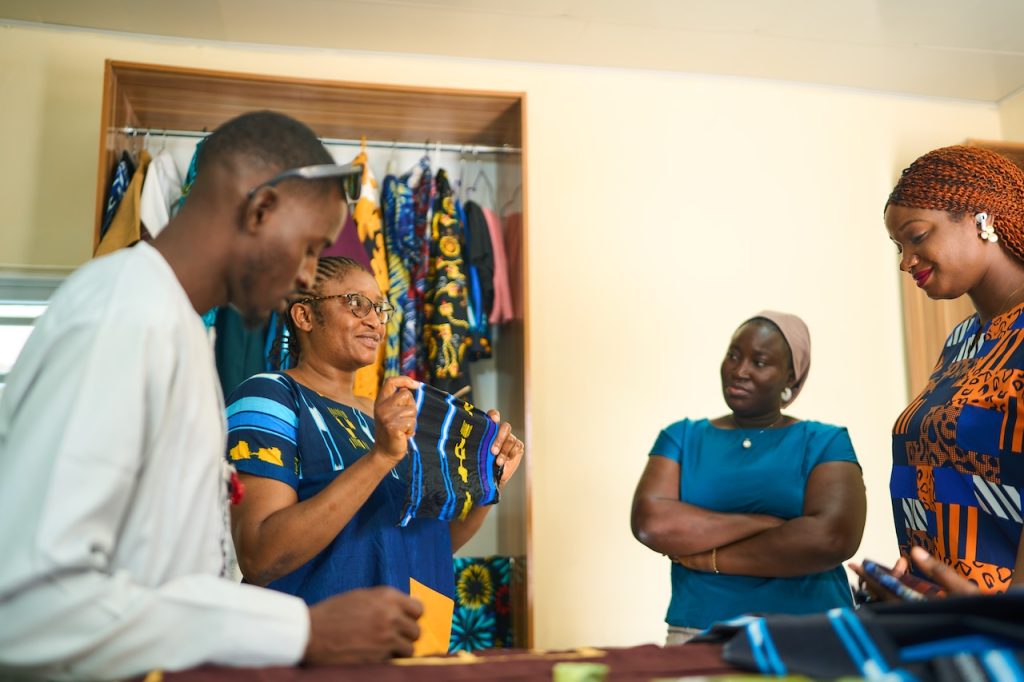

Nigeria stands at a pivotal moment in its history. With a population projected to double by 2050, a rapidly evolving global economy, and the urgent need to address climate change, the path to sustainable industrialization has never been more critical. Our choices today will determine whether we unlock our nation’s immense potential or remain constrained by past challenges.
At the Bank of Industry (BOI), we believe that industrialization is not just about economic growth—it’s about creating opportunities for all Nigerians. It’s about building a future where our youth thrive, our women lead, our businesses innovate, and our communities prosper. To achieve this vision, we have identified six transformative thematic areas that will serve as the foundation for a resilient, inclusive, and forward-looking economy: Climate, Youth & Skills, Digital Economy, SMEs, Infrastructure, and Gender.
These pillars are more than priorities—they are the building blocks of a brighter tomorrow. We are committed to driving sustainable progress and empowering Nigerians to shape their destinies through targeted financing, innovative programs, and strategic partnerships. This is not just our mission; it is our promise to Nigeria. We are laying the groundwork for a prosperous, equitable, and sustainable future for future generations.


Climate change is a major global challenge, evident in rising temperatures, changing rainfall patterns, and extreme weather events. These changes lead to loss of farmland, infrastructure damage, and increased food insecurity. Nigeria ranks 152 out of 182 on the ND-GAIN Index, highlighting our vulnerability to these effects.
Goal
What does BOI intend to achieve

Financing energy-efficient buildings and smart grid technologies.

Investing in waste-to-wealth solutions and sustainable waste management.

Partnering with climate activists and NGOs for policy advocacy

Supporting clean energy innovations in solar, wind, biomass, and hydropower.
Measure reductions in greenhouse gas emissions achieved through improved energy efficiency.
Track the increase in renewable or green energy capacity.
Evaluate the growth in access to financial services and clean energy technologies.
Monitor the area of land protected or restored through resilient practices.
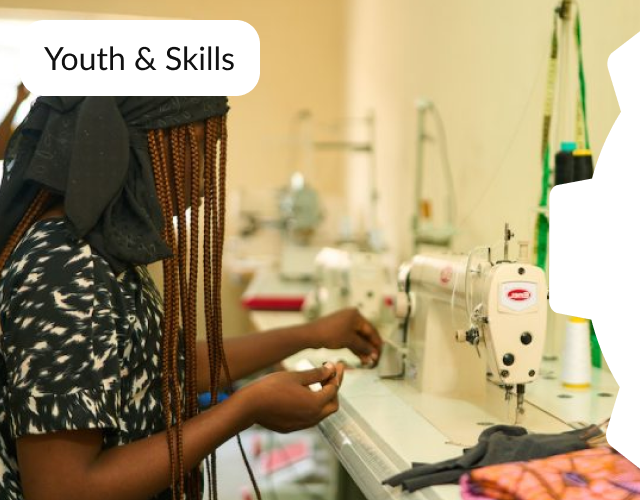

Nigeria's demographic profile is unique, with nearly 50% of its population under 35 years old. With a rapidly growing youth population and increasing migration pressures, there is an urgent need to invest in youth development and create opportunities for meaningful employment.
Goal
What does boi intend to achieve

Providing affordable loan products for youth-led businesses.

Enhancing education & vocational training to boost employability

Deploying digital solutions to expand youth access to job opportunities.

Hosting the BOI Youth Innovation & Development Conference, featuring 100+ youth-led enterprises.
Track enrollment in skills development programs, disaggregated by gender, location, and socio-economic background
Assess the relevance and effectiveness of skills programs through employer and trainee feedback.
Monitor employment rates and business creation among trained youth.
Count the youth accessing loan facilities from BOI or partner financial institutions.

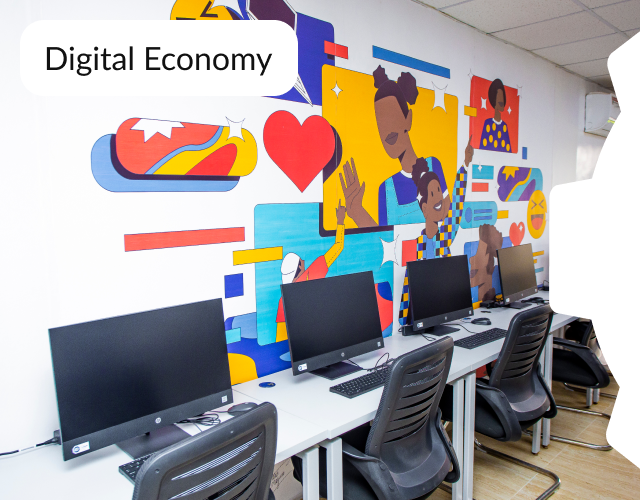
The digital economy is poised to significantly boost productivity, market access, and service exports. Currently contributing around 6% to Nigeria's GDP, the sector is expected to grow to at least 12% by 2050. Nigeria's vibrant digital ecosystem firmly positions the country for this digital transformation, particularly in cities like Lagos and Abuja.
Goal
What does boi intend to achieve

Collaborate with research institutions to explore emerging AI, scientific computing, and human-computer interaction

Investing in broadband networks, fiber optics, and data centers.

Supporting e-commerce and fintech businesses in accessing global markets.

Partnering with AI & scientific research institutions to drive tech innovation.

Enhancing digital literacy through training programs.
Measure direct and indirect employment opportunities within the digital sector.
Track the percentage of target populations and businesses using digital solutions offered by BOI.
Monitor the increased access to financial services via digital channels.
Evaluate the effectiveness of digital training programs in enhancing skills.

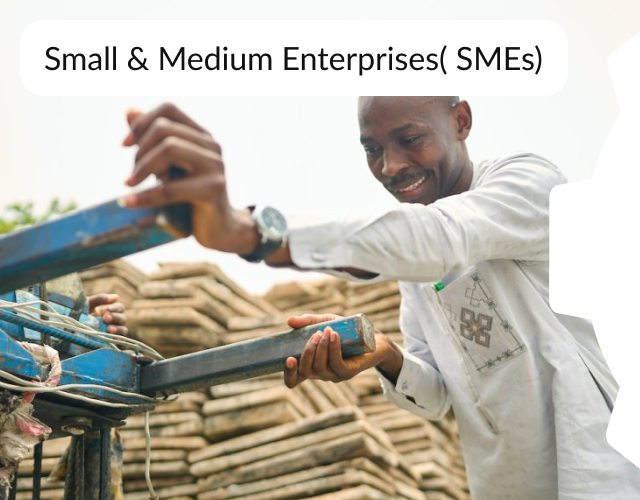
MSMEs are crucial engines of socio-economic transformation and inclusive growth. In Nigeria, approximately 41.5 million MSMEs contribute significantly to the GDP, employment, and exports. Empowering MSMEs is essential for broad-based economic development.
Goal
What does boi intend to achieve

Expanding access to finance and markets for MSMEs.

Supporting manufacturing and industrialization of small businesses.

Promoting the use of local raw materials to reduce dependence on imports.

Strengthening export competitiveness of MSMEs.
Monitor the number of MSMEs transitioning to medium or large-scale enterprises.
Assess MSME participation in supply chains, directly and indirectly.
Track the increase in MSMEs registering as formal businesses.


Nigeria faces a significant infrastructural deficit, requiring an estimated $3 trillion over the next 30 years. Current infrastructure represents only 35% of GDP, well below regional and emerging economy averages. Bridging this gap is essential to support economic growth and improve quality of life.
Goal
What does boi intend to achieve

Investing in modular refineries for local petroleum refining.

Developing indigenous airport infrastructure to improve connectivity.

Establishing solar parks and renewable energy hubs for off-grid communities.

Supporting free trade zones & industrial hubs to streamline exports.

Facilitate an efficient rail system for logistics & trade.
Measure the flow of goods and services through rail, ports, and roads.
Track the transformation of rural areas into urban centers.
Count the number of solar parks or locations powered by alternative energy.
Evaluate the growth of logistics and service businesses supporting infrastructure.

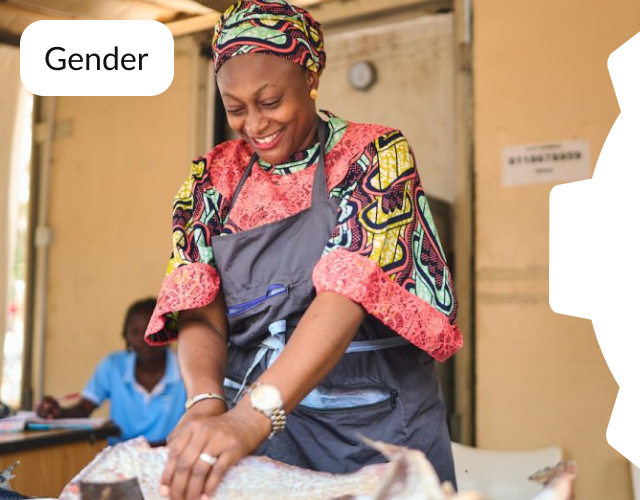
Empowering women is key to advancing economic development and reducing poverty. In Nigeria, women face challenges that limit their financial opportunities and decision-making power. Strengthening women's economic empowerment can improve household income, food security, and overall development.
Goal
What does boi intend to achieve

Expanding finance access through women-led funding initiatives

Launching mentorship programs and gender-inclusive policies.

Strengthening women's role in labor, business, and governance.

Partnering with international organizations to drive impact.
Monitor women's access to financial services, land ownership, and business participation.
Track the number of informal women-owned businesses transitioning to formal registration.
Measure the number of women attending business training and capacity-building programs.
Evaluate increases in women's participation in community leadership and decision-making roles.
Access our single-digit interest loans as well as expert advisory support for your business. Click here to contact us if you have additional questions.